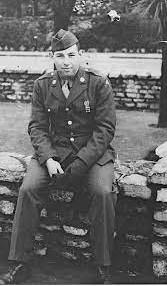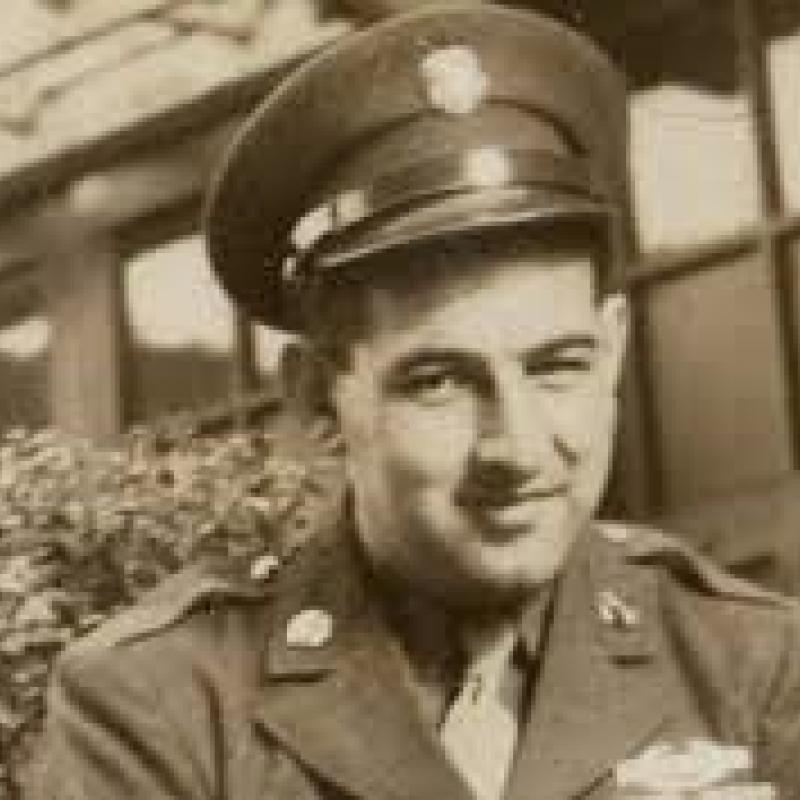Seen something inappropriate? Report
Harold Baumgarten, US Army
Story Profile
In early 1944, the quiet countryside of southern England was anything but peaceful. Villages, farms, and fields were transformed into bustling military camps, packed with thousands of American soldiers. These men were part of Operation Overlord, the Allied plan to invade Nazi-occupied France.
One such unit was the 29th Infantry Division, made up of mostly National Guardsmen from Maryland and Virginia. They had arrived in England months earlier and had been training relentlessly—practicing beach landings, storming mock fortifications, and learning how to fight in hedgerow country.
On the night of June 5, 1944, in a camp near Devon, the men received their final orders: they would land at Omaha Beach the next morning. The mood was somber. Letters were written. Equipment was checked for the last time. Chaplains moved from tent to tent, offering prayers and comfort.
One young soldier, Private First Class Harold Baumgarten, just 19 years old, wrote to his mother:
“Don’t worry, Mom. I’ll be okay. I’ll be home before you know it.”
In the early hours of June 6, soldiers boarded landing craft and ships along the southern coast. British civilians watched quietly from the cliffs and harbors as long convoys disappeared into the fog and darkness of the English Channel.
The next day, many of those soldiers, including Baumgarten, would face withering machine-gun fire and brutal resistance on Omaha Beach.
Baumgarten landed in the first wave on Omaha Beach, specifically on Dog Green sector, the most heavily defended part of the beach—right in front of the German strongpoint at Pointe du Hoc. He was wounded five times during the assault; shot in the face and jaw by a machine gun, later hit in the back, foot, and other areas during the brutal push inland. He was eventually evacuated and survived, though his injuries were severe and required extensive medical treatment.
After the war, Baumgarten became a doctor and later a teacher and public speaker. He dedicated much of his life to educating people about D-Day and World War II, especially young students. He appeared in several documentaries and gave first-hand accounts of the invasion to ensure that the sacrifices of his fellow soldiers were not forgotten. He was a Jewish-American, which added even deeper personal significance to fighting against the Nazis.
Dr. Harold Baumgarten served as a historical consultant for Saving Private Ryan during its production in the mid to late 1990s, prior to the film's release in 1998.
His book, "D-Day Survivor: An Infantryman's Memoir of World War II", was published in 2006.
He passed away peacefully in his sleep in Florida on December 25, 2016, at the age of 91.







